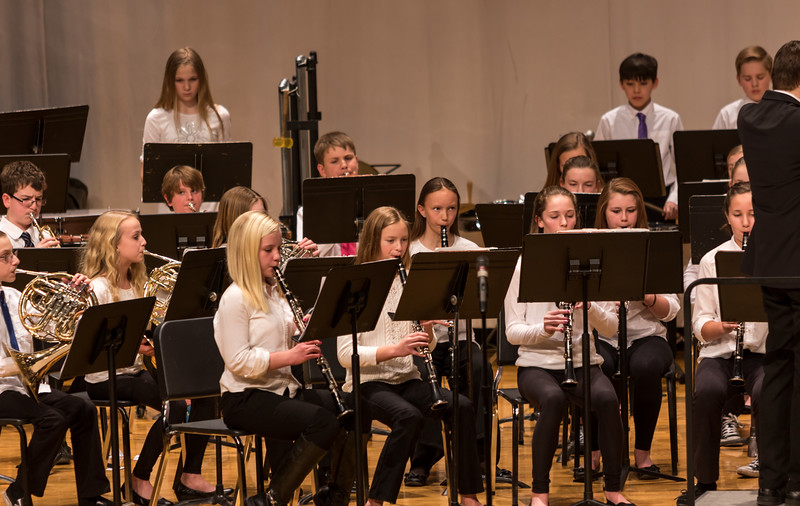
I Picked My Music For The Concert…Now What Do I Do?
Curated from Conn-Selmer’s CSI Connect – by Bill Humbert –
Music Educators have so many responsibilities in order to keep their program moving in a positive direction every day. Often times we struggle to gather and embrace the many levels of administrative business necessary to provide an amazing learning experience for our students and our music education community. The items that follow may help you organize your thoughts and make a positive difference both in and out of the classroom for you and your students.
Taking Care of Business…On the Outside
It is important to be aware of your responsibilities outside of the classroom. Often times we focus so much on the goals of our program, the teaching and learning in our own classroom that we “forget” or “procrastinate” on those obligations that we have as educators as a member of our school building faculty.Make sure that everything is in order with your job outside of the classroom.Take care of your professional obligations where the students are not concerned.When the paperwork comes across your desk, take care of it that day. Paperwork procrastination will give you and your program a poor reputation with the people that get things done for you (Secretary, Administrator, and Transportation Folks, Parents). Make sure you take care of those who, at some point in time, you will need to take care of you.Know these things
- Policies and Procedures
- Grades and Paperwork
- Committee Work and Assignments
Taking Care of Business…On the Inside
Are you ready to teach? So often, and unfortunately, this may be the last order of business before our students arrive.
Is Your Room Ready?Chairs and stands in good working orderOrderly and neat room set-upA lack of clutterPercussion area (if necessary) neat and cleanBulletin boards and wall decorations/informationMarker board or chalk board neat and orderly
Is your Lesson Ready?Know what you are going to do every minute of the rehearsal
- The Opener: warm up process and announcements
- The Main Event: the rehearsal plan for performance preparation
- The Closer: rehearsal wrap-up and review of concepts
Use a lesson planning form or lesson outlineHave a “hip pocket” lesson plan just in case your initial ideas don’t workPlan in advance:
- Weekly
- Monthly
- Semester
Working to provide a meaningful implementation of your plan is essential. Are you communicating your intent and expectations in a way for your students to understand?
- Understand your plan and how you will get the ideas across to the students
- Remember that communication is not what you say, but what your students get. You may need to develop multiple strategies to teach the same topic or concept.
R-E-S-P-E-C-T…Find Out What It Means…and Give It
It is often said that in order to coordinate a successful music program that it “takes a village”. It truly does. There are so many layers of responsibilities and commitments that center on people…on other people. We need the entire “family” to understand their importance and feel accepted into the process of being a part of the ensemble.
- Students
- Treat with respect
- Acknowledge accomplishment…catch them doing it right
- Be firm and fair with your expectations for the program
- Avoid playing favorites
- Support them in their school activities that are not “music related”
- Colleagues
- They are fighting the same battle as you…education
- Support and help if possible
- Stay in touch…don’t hibernate in your “music room cave”
- Community
- Participate in community programs if possible
- Parades, Community Festivals
- Seek opportunities to give back to the community that is often times giving to your program through financial or physical support.
- Participate in community programs if possible
Sell, Sell, Sell
As a music educator, it is our responsibility to sell our program. We need to let others know what is happening with our program, so when we need their assistance, or want them to take an interest in our program, it is not a surprise that our program exists. Additionally, keeping others “in the know” about the success and growth of your program will pay dividends when tough decisions are being made about class schedules, budgeting, and curriculum changes in your school district. Areas of communication should not only be focused on students (current, former and future), but also on parents, administration at the school and district level, other faculty members, and community members. Let them know and celebrate with you all of the amazing things that are happening in your classroom and with your students.
Communication is the key to a less turbulent journey through your school year. Make it a priority to keep others informed. There should be no surprises. You need to stay informed…There should be no surprises to YOU
Students, Parents, School Community, and School Administration should also be prioritized in your communication model. And, don’t forget your feeder programs. The teachers, parents and students of your feeder schools should also know what is happening so that they can develop a sense of understanding and excitement towards supporting and being a part of your program in the future.
Enjoy the Ride.
Bill Humbert is a Conn-Selmer Educational Clinician.
SEE ALSO, FROM THE NOTTELMANN BLOG:
